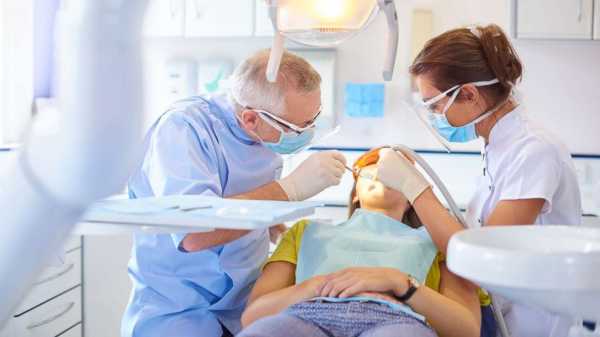
The findings, published in the Journal of the American Medical Association, looked at 71,000 insured people from 2009 to 2015. Of the 71,000, about 60,000 filled their opioid prescription after wisdom tooth surgery. Those in their late teens and twenties had the highest odds of persistent opioid use after that, especially those who filled that initial prescription.
The authors noted that multiple studies have shown that new opioid users are at risk for persistent use after elective surgeries. In June 2017, a supportive study in JAMA said “new persistent opioid use represents but previously underappreciated surgical complication that warrants increased awareness.”
Opioid prescriptions have increased despite increased awareness, a trend that was highlighted in the medical journal BMJ.
Five million people have had a wisdom tooth extracted, according to the American Journal of Public Health. Vicodin, a medication which contains acetaminophen (Tylenol) and hydrocodone (opioid), is routinely prescribed by American oral surgeons after an extraction.
“From our findings, we should strongly consider not prescribing any opioids routinely after wisdom teeth are pulled. Particularly since there is evidence that anti-inflammatories may be just as good, if not better, for pain management after wisdom teeth are pulled,” Dr. Calista Harbaugh, a general surgery resident at the University of Michigan, told ABC News.
In April, researchers from the American Dental Association Science Institute and Case Western University published a scientific review of studies in the Journal of the American Dental Association concluding non-steroidal anti-inflammatory drugs (NSAIDs) alone or in combination with acetaminophen are more effective with fewer side effects compared to opioids. The findings support the ADA’s 2016 policy statement that dentists should “consider NSAIDs as the first-line therapy for acute pain management.”
ADA President Dr. Joseph P. Crowley said the association has called on its 161,000 member dentists to “double down” on their efforts to prevent opioids from harming patients and their families.
In 2016, the CDC said more than 66 percent of those who died from drug overdose died from opioid abuse.
“Teens and young adults are an important population to understand the effects of exposure to opioids for predictable reasons, like having wisdom teeth pulled. They are vulnerable from the standpoint of ongoing development as well as social pressures,” said Harbaugh.
New approaches may help curb the opioid epidemic.
“It will be important to find areas where we can help eliminate the exposure to opioids in this group to show long term decrease in opioid use,” Dr. Chad Brummett, an assistant professor of anesthesiology at the University of Michigan, told ABC News.
Sourse: abcnews.go.com
0.00 (0%) 0 votes


































